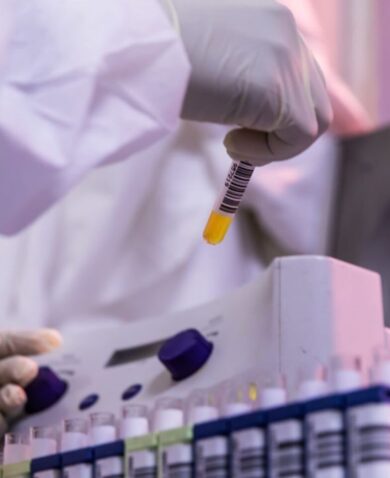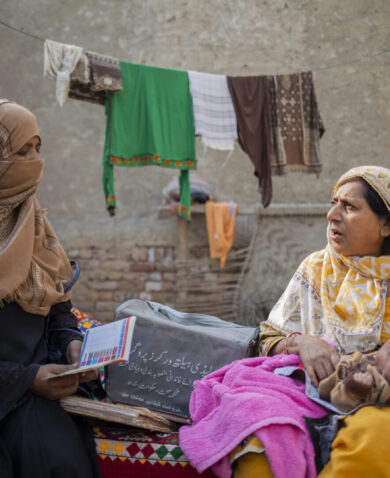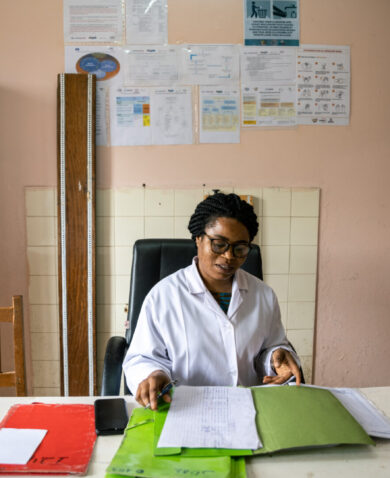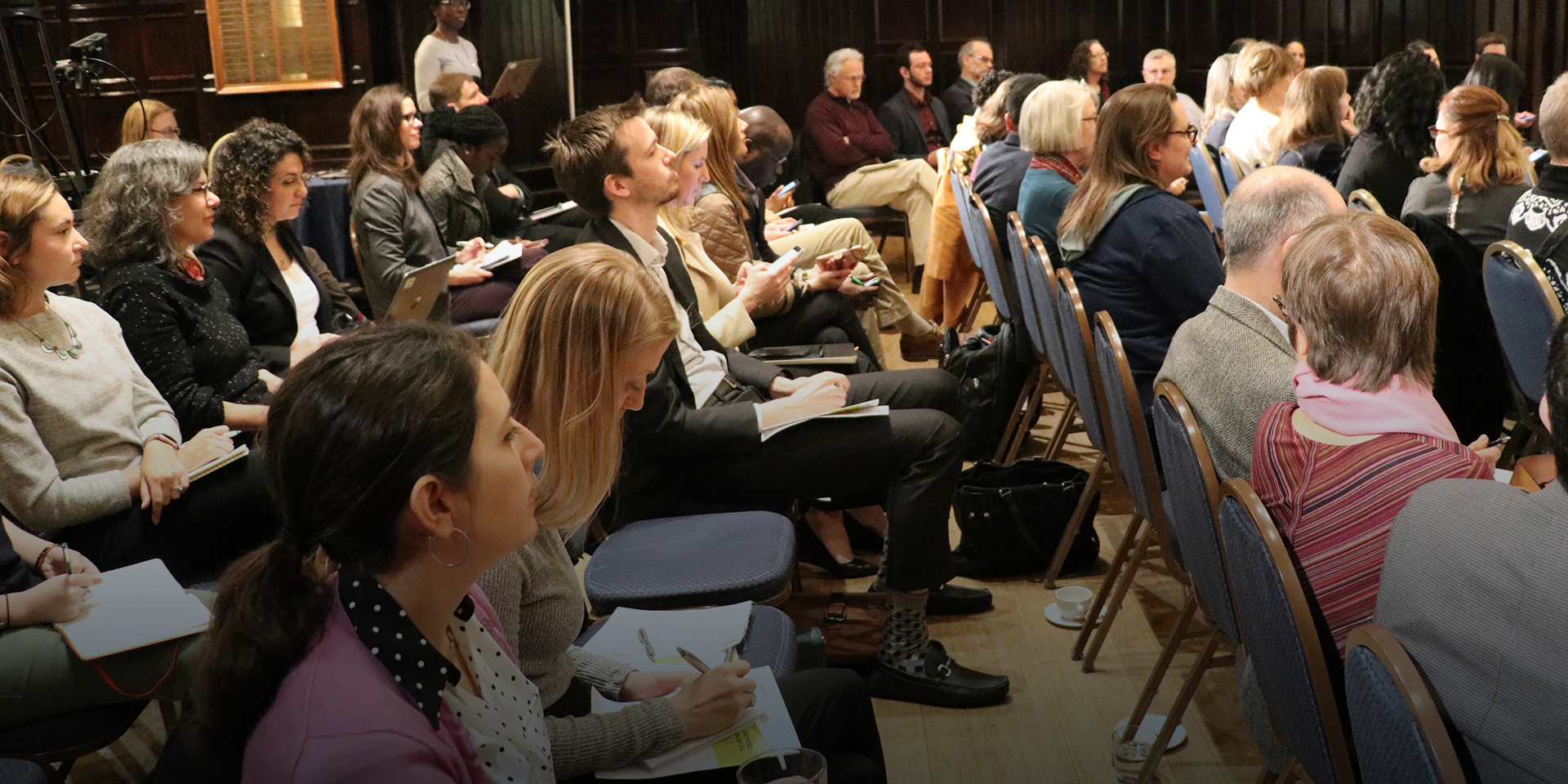
Chemonics News
News: Chemonics Takes “A Critical Look at Health Systems Thinking”
March 20, 2019 | 3 Minute ReadOn March 14, in Washington, D.C., Chemonics hosted the first event in a two-part panel series addressing the application of systems thinking in global health.
In the global development community, there is a growing call to design and implement interventions that take a more holistic view of the health system. Systems thinking makes this possible and allows donors and implementing partners to better understand the interactions, behaviors, and effects within the wider health system. On March 14, Chemonics hosted Beyond Building Blocks: A Critical Look at Health Systems Thinking to explore how health systems thinking can foster a better understanding of the complex interconnectivity of health systems interventions.
Held at the National Press Club in Washington, D.C., the event kicked off a two-part panel series addressing the application of systems thinking in global health. “We’re here this morning to have an engaging discussion about doing development differently, and more specifically, about the topic of using systems thinking in health programming,” Chemonics President and CEO Susanna Mudge said in her opening remarks. “For us, systems thinking is an approach to problem-solving that views every problem as part of a wider, dynamic system.”
USAID Human Resources for Health in 2030 (HRH2030) Project Director Wanda Jaskiewicz moderated the discussion. The esteemed panel featured Kelly Saldaña from USAID’s Bureau for Global Health, Cristian Baeza from the Center for Healthy Development, and Ligia Paina from the Johns Hopkins University Bloomberg School of Public Health. The panelists addressed questions regarding whether systems thinking is currently happening and if we can effectively use systems thinking within parameters that only allow for disease-specific programming?
The panelists offered insights on how to put systems thinking into practice and how to measure progress along the way. Drawing from her experience as a health systems researcher, Dr. Paina emphasized creating an enabling space where shared decision-making can take place and recognized the shift toward embedded research and implementation research. Ms. Saldaña reminded the audience that despite the many predefined tools available — from root-cause analysis to political economy analysis — systems thinking can take many forms and is ultimately about assessing a problem from multiple perspectives and not about the tool you use. Mr. Baeza also recognized the importance of thought partnership with frontline stakeholders by building together, listening first, and ensuring we “leave our known-knowns at home and bring the unknown-knowns in the conversation.”
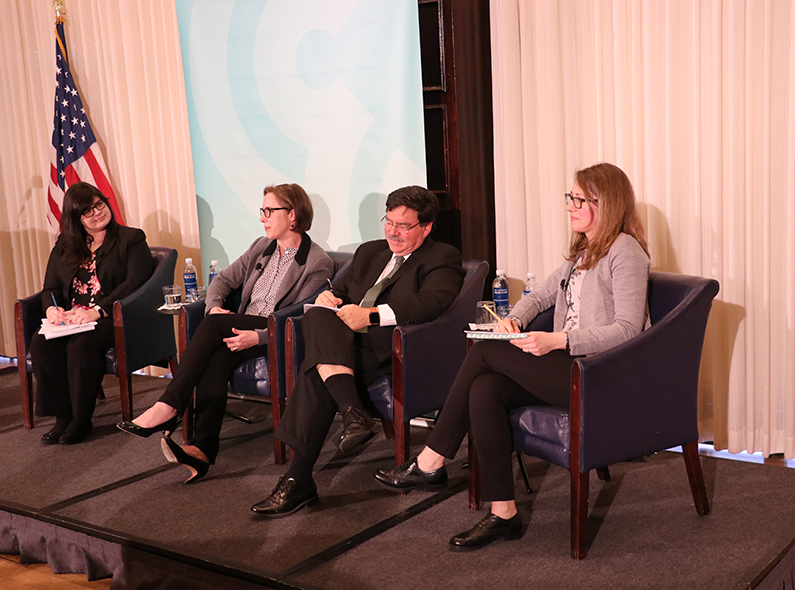
About 80 people attended the panel discussion and more than 1,600 people from around the world have since viewed the event via Facebook. Our online and live audiences contributed to the discussion with insightful questions about measuring health systems work in innovative ways, creating tangible improvements that last beyond the life of a global development project, and more.
We look forward to continuing the health systems thinking dialogue during the second event in our two-part panel series, which will focus on the practical application of systems thinking. Details are forthcoming and will be shared across our social media channels, including LinkedIn, Twitter, and Facebook.
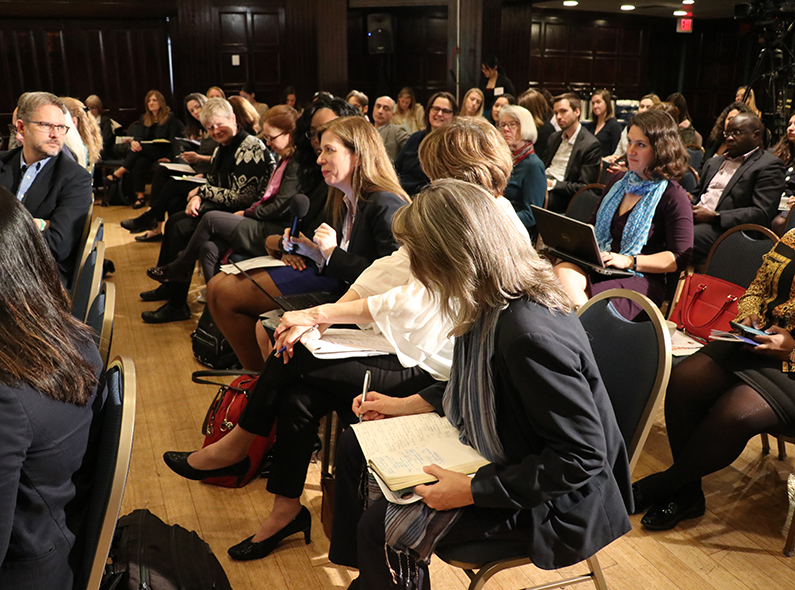
Watch the recorded webcast of the event here and look out for more information on the second event in our Beyond Building Blocks series. To learn more about bringing “doing development differently” rhetoric to reality, read our Devex article on thinking and working politically.










